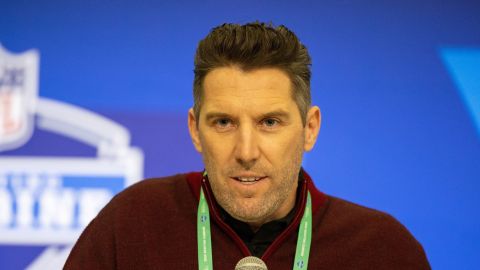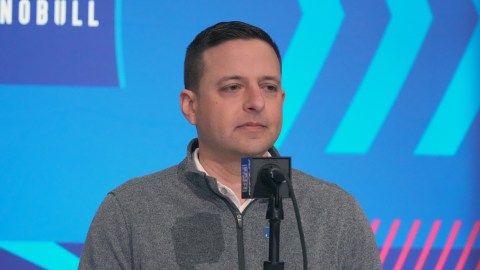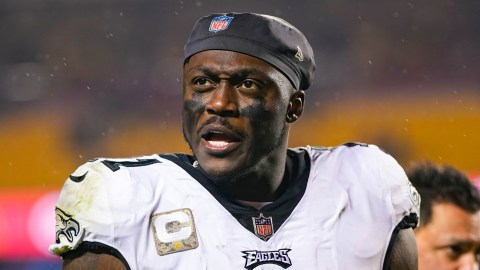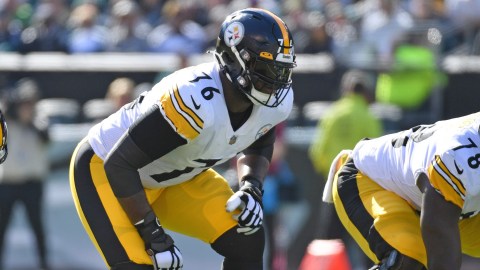FOXBORO, Mass. — Some form of the word “tough” was spoken 31 times Wednesday during New England Patriots head coach Bill Belichick’s weekly news conference.
The intangible first was discussed ahead of the Patriots’ clash with the Baltimore Ravens, a team typically known for its toughness, on “Monday Night Football”. A talkative Belichick went into great detail Wednesday explaining how he finds and judges toughness in his Patriots players.
Here’s the full, lengthy exchange.
Q: Have you ever targeted a player in the offseason for the intangible ability of toughness that they can bring here to your organization on top of the pure football ability they possess?
BB: Yeah, sure. Yeah, I mean look, if you want a tough team, you get tough players. If you want a fast team, you get fast players. If you want a big team, you get big players. If you want a quick team, you get quick players. It’s hard to get all of those. Those guys go in the top five picks in the draft. After that, you decide what you want. If you want tall, long guys then you go get them. If you want tough guys, maybe they’re not tall and long but they’re tough. If you want fast guys, you go get fast guys. Maybe they’re not tough but they’re fast. Maybe they’re not tall but you get what you want. Sure, there are guys that have those different qualities and if that’s what you’re looking for, that’s what you want, then there’s probably somebody out there that would have that quality and maybe not one of the other ones that you want. Maybe somebody else is looking for a different quality. They’re all important but you’ve got to prioritize somewhere. If you can’t get everything then you prioritize based on what you feel is most important to your team.
Q: Did Rodney Harrison fall into that category as someone that you brought in not just for his skill but for his mental toughness?
BB: Yeah, I mean Rodney [Harrison] had — I mean, you’re talking about a Pro Bowl player, so he was fast, he could cover, he could tackle, he was tough, he was instinctive, so you could check a lot of boxes with him. I’d say those are the fairly easy ones. The harder ones are the ones who are — this guy’s got this box, the next guy’s got that box, and this guy’s got another box. When you get that player you’re going to be saying, ‘Well, he doesn’t do this but he does do that,’ so you take him for what he can do, not for what he can’t do. If you want to focus on what he can’t do, then you probably shouldn’t take that player, you should take another player who checks the box that you want to check.
Q: How do you measure intangible characteristics like toughness when evaluating a player?
BB: Toughness, intelligence, work ethic, I mean, those things aren’t — you don’t get that out of vertical jump. Whatever characteristics you want, you put whichever ones in there. Dependability, whatever adjectives you want.
Q: Do you measure those things based on references you have across the league or on the college level?
BB: I mean, if you can count on that, yeah. It’s not; I mean, with all due respect to the colleges, it’s different. A guy could be one thing in college; I don’t think that ensures that he’s going to be that at this level. In fact, I’d say that’s not necessarily a predictor. It might be; it might not be. But yeah, you can put whatever criteria you want into evaluating players — their physical criteria; their other criteria, intangibles or whatever characteristic you want to call them. When you’re picking a team, picking up players, at some point, there is going to be a pool of players there that are going to be relatively equal in value; some with certain attributes and others with other attributes. Which ones do you value most, or which ones are more important to your system, or which ones do you think can maybe be improved that are weaknesses but possibly could not be weaknesses over a period of time that you could change? All of those are factors.
Q: Is it just strictly durability and physical characteristics that you measure toughness by or is it mental and being able to deal with that side of things too?
BB: Yeah, it’s all that. There are a lot of different types of toughness. Going over the middle and catching a ball when somebody is getting ready to hit you hard — that’s one kind of toughness. Lining up against a guy that’s big and strong a few inches away is a different kind of toughness. Taking on guys that are bigger than you in the run-force and linemen and things like that, that’s another kind of toughness. Receivers cracking on ends and linebackers and safeties; there are different kinds of toughness. Then there’s mental toughness — kickers, it’s a non-contact position but there is a lot of mental toughness in those specialist positions; snappers, holders, kickers. There is an element of physical toughness but there is definitely an element of mental toughness that is different than a guard’s toughness. They’re different. I think you have to recognize that. There are some guys that are tough in a certain way; maybe they’re not tough in another way. Maybe a guy won’t go in and crack block, a receiver won’t go in and crack block, so you could kind of say he doesn’t have that element of toughness, but he could catch the ball and get somersaulted on the hit and hang on to it. That’s another kind of toughness, so there are different — some guys can play through a lot of pain and a lot of injury but maybe they’re not the most physical players. Other guys are very physical players but maybe they don’t deal with bumps and bruises as well. We’re all different. We all have different strengths and weaknesses. I don’t think there is any right or wrong answer. There is some kind of mosaic that encompasses all of that.
Thumbnail photo via Greg M. Cooper/USA TODAY Sports Images




